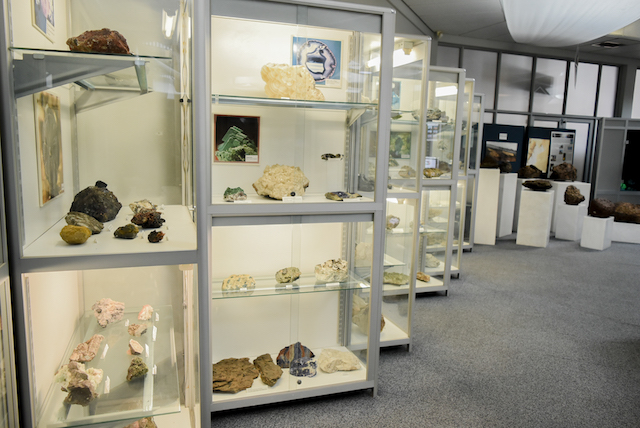A Guide to the Earth Science Museum – The Namibian
The National Earth Science Museum is located on the ground floor of Windhoek’s Ministry of Mines and Energy’s Head Office. It has displays about Namibia’s mineral, fossil, and mining history.
Namibia is the oldest desert in the globe, so it’s not surprising there are so many fossils under the surface.
Archaeologists have found fossils of animals, plants, and human ancestors in an attempt to reconstruct the history of a time before our time.
The first exhibit shows more than 20,000,000 years of human evolution. It includes the now extinct Otavipithecus Naibiensis, which was at the time of its discovery the only non-hominin ape in southern Africa. Because of its flat teeth, it was able to survive eating fruits and plants.
It was discovered in the Berg Aukas near Grootfontein. This means that it would have been on the planet more than 12 million years ago.
There is a fascinating connection between the discovery and mining of fossils.
Mining companies dig for minerals to mine. Sometimes they find more ancient treasures. These fossils are part of exhibits that include fossils of prehistoric animals such as ostriches and leopards.
Next is a section on trace fossils. These are not direct remains of species but a trace or trail of an animal’s footprint, burrow, or trail.
Christine Marais’s stunning illustrations bring the fossil exhibit to life. They show what the animals looked like in their habitat millions years ago.
The mining exhibit demonstrates how the industry contributes 25% to the country’s economy. It narrates the history of Namibia’s mining industry, particularly its diamond history, detailing the discovery of diamonds in Namibia near Lüderitz by Zacharias Lewala in April 1908, which brought on the boom of the diamond rush at Kolmanskop.
The exhibit traces the development of the diamond mining industry, from land to sea by Debmarine Namibia. It also displays the minerals that are mined here in Namibia. It also explains their everyday uses, such as toothpaste, ceramic sinks, and corrugated Iron.
The museum is an excellent activity for anyone who wants to learn more about the country’s fossil, mine, and mineral history. For schools and other groups, the museum offers guided tours.
Entry is free. The hours of operation are Monday through Friday, from 08h00-13h00, and 14h00-17h00.
The National Earth Science Museum is located in Windhoek at the Ministry of Mines and Energy 6 Aviation Road (between Eros Airport and Safari Court Hotel). Contact 061 284 8111 for more information.
Source: namibian
